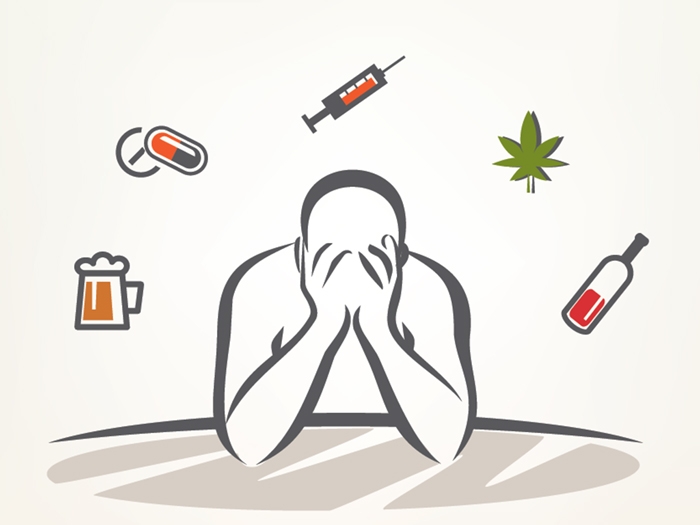4.50 (2 Ratings)
Diploma in Chemical Dependency and Addiction Counseling

What I will learn?
- Conduct motivational interviewing, client assessment and treatment planning
- Learn vital techniques for screening, brief intervention and referral to treatment
- Prepare for individual, group and family counseling
- Practice skills and receive coaching during internship experience.
- Meet educational requirements for certification
Course Curriculum
ACT 102: Introduction to Pharmacology of Psychoactive Substances
To be an effective provider, it is essential to have a basic understanding of the pharmacology of the various psychoactive substances a client might be consuming. The scientific and medical study of pharmacology strives to understand the nature of psychoactive substances, the physiological and psychological effects they have on the body and mind, and the potential chemical interactions that might occur when one or more psychoactive substances are introduced into the body.
The study of pharmacology helps the provider understand the behaviors related to use, dependence, tolerance, and withdrawal from psychoactive substances.
Services provided along the continuum of care incorporate the findings from pharmacological research
focused on evidence-based treatment modalities along with outcome data on the effectiveness of treatment.
These evidence-based, outcome-driven modalities help a provider guide a client through detox, harm reduction, recovery, and/or sobriety.
-
Course introduction
02:00 -
PHARMACOLOGY OF PSYCHOACTIE SUBSTANCES SECTION A (APRIL 2024)
-
PHARMACOLOGY OF PSYCHOACTIVE SUBSTANCES SECTION B (APRIL 2024)
-
INTRODUCTION TO PHARMACOLOGY SECTION A (AUGUST 2024)
-
INTRODUCTION TO PHARMACOLOGY SECTION B (AUGUST 2024)
-
PHARMACOLOGY OF PSYCHOACTIVE SUBSTANCES SECTION A (DECEMBER 2024)
-
PHARMACOLOGY OF PSYCHOACTIVE SUBSATNCE SECTION B DECEMBER 2024
-
INTRODUCTION TO PHARMACOLOGY OF PSYCHOACTIVE SUBSTANCES SECTION A (APRIL 2025)
-
INTRODUCTION TO PHARMACOLOGY OF PSYCHOACTIVE SUBSTANCES SECTION B (APRIL 2025)
-
INTRODUCTION TO PHARMACOLOGY OF PSYCHOACTIVE SUBSTANCES SECTION A (AUGUST 2025)
-
INTRODUCTION TO PHARMACOLOGY OF PSYCHOACTIVE SUBSTANCES SECTION B (AUGUST 2025)
-
INTRODUCTION TO PHARMACOLOGY SECTION A (DECEMBER 2025)
-
INTRODUCTION TO PHARMACOLOGY SECTION B (DECEMBER 2025)
ACT 103: Concepts and Principles
-
CONCEPTS AND PRINCIPLES OF ADDICTION: SECTION A (AUGUST 2022)
-
CONCEPTS AND PRINCIPLES OF ADDICTION: SECTION B (AUGUST 2022)
-
CONCEPTS CAT 15 NOVEMBER 2022
-
CONCEPTS AND PRINCIPLES OF ADDICTION SECTION A DECEMBER 2022
-
CONCEPTS AND PRINCIPLES OF ADDICTION SECTION B
-
CONCEPTS AND PRINCIPLES SECTION A SPECIAL EXAM OCTOBER 2023 30 MARKS
-
CONCEPTS AND PRINCIPLES SECTION B SPECIAL EXAM OCTOBER 2023
-
CONCEPTS AND PRINCIPLES CAT 2ND AUGUST 2023
-
CONCEPTS AND PRINCIPLES OF ADDICTION SECTION A DECEMBER 2023
-
CONCEPTS AND PRINCIPLES SECTION B DECEMBER 2023
-
CONCEPTS AND PRINCIPLES OF ADDICTION COUNSELLING SECTION A april 2024
-
CONCEPTS AND PRINCIPLES SECTION B APRIL 2024
-
CONCEPTS AND PRINCIPLES OF ADDICTION SECTION A (AUGUST 2024)
-
CONCEPTS AND PRINCIPLES OF ADDICTION SECTION B (AUGUST 2024)
-
CONCEPTS AND PRINCIPLES OF ADDICTION SECTION A DECEMBER 2024
-
CONCEPT AND PRINCIPLES OF ADDICTION SECTION B DECEMBER 2024
-
CONCEPT AND PRINCIPLE SECTION A (APRIL 2025)
-
CONCEPTS AND PRINCIPLES OD ADDICTION SECTION B (APRIL 2025)
-
Concepts and Principles CAT JULY 31 2025
-
Concepts and Principles of Addiction SECTION A (AUGUST 2025)
-
CONCEPTS AND PRINCIPLES OF ADDICTION SECTION B (AUGUST 2025)
-
CONCEPTS AND PRINCIPLES OF ADDICTION SECTION A (DECEMBER 2025)
-
CONCEPTS AND PRINCIPLES OF ADDICTION SECTION B (DECEMBER 2025)
ACT 104: Introduction to Psychology
-
INTRODUCTION TO PSYCHOLOGY SECTION A (AUGUST 2025)
-
INTRODUCTION TO PSYCHOLOGY SECTION B (AUGUST 2025)
-
INTRODUCTION TO PSYCHOLOGY SECTION A (DECEMBER 2025)
-
INTRODUCTION TO PSYCHOLOGY SECTION B (DECEMBER 2025)
ACT 105: Effective Study Skills
-
EFFECTIVE STUDY SKILLS SECTION B (APRIL 2024)
-
Quiz 15: EFFECTIVE STUDY SKILLS SECTION A (AUGUST 2024)
-
Quiz 16: EFFECTIVE STUDY SKILLS SECTION B (AUGUST 2024)
-
EFFECTIVE STUDY SKILLS SECTION A DECEMBER 2024
-
EFFECTIVE STUDY SKILLS SECTION B DECEMBER 2024
-
EFFECTIVE STUDY SKILLS SECTION A (APRIL 2025)
-
EFFECTIVE STUDY SKILLS SECTION B (APRIL 2025)
-
EFFECTIVE STUDY SKILLS SECTION A (AUGUST 2025)
-
EFFECTIVE STUDY SKILLS SECTION B (AUGUST 2025)
-
EFFECTIVE STUDY SKILLS SECTION A (DECEMBER 2025)
-
EFFECTIVE STUDY SKILLS SECTION B (DECEMBER 2025)
ACT 206: Theories of Psychological Counseling
-
THEORIES OF COUNSELING SECTION B APRIL 2023
-
Theories CAT NOVEMBER 29th 2023
-
THEORIES OF COUNSELING DECEMBER 2023 SECTION B
-
THEORIES OF COUNSELING SECTION A : SPECIAL EXAM FEBRUARY 2024
-
THEORIES OF COUSELLING SECTION B: SPECIAL EXAMS FEBRUARY 2024
-
THEORIES OF COUNSELING SECTION A (APRIL 2024)
-
THEORIES OF COUNSELING SECTION B APRIL 2024
-
THEORIES OF COUNSELLING SECTION A (AUGUST 2024)
-
THEORIES OF COUNSELING SECTION B (AUGUST 2024)
-
THEORIES OF COUNSELING SECTION A DECEMBER 2024
-
THEORIES OF COUNSELING SECTION B DECEMBER 2024
-
THEORIES OF COUNSELING SECTION A (APRIL 2025)
-
THEORIES OF COUNSELLING SECTION A (SPECIAL EXAMS JUNE 2025)
-
THEORIES OF COUNSELING SECTION B (SPECIAL EXAMS JUNE 2025)
-
Theories of Counseling exam Section A (August 2025)
-
Theories of Psychological Counseling Section B (August 2025)
-
THEORIES OF COUNSELLING SECTION A (DECEMBER 2025)
-
THEORIES OF ADDICTION COUNSELLING SECTION B (DECEMBER 2025)
ACT 207: Skills Practice for Addiction Counselors
-
SKILLS PRACTICE SECTION B APRIL 2023
-
SKILLS PRACTICE CAT 22nd NOVEMBER 2023
-
SKILLS PRACTICE DECEMBER 2023 SECTION A
-
SKILLS PRACTICE DECEMBER 2023 SECTION B
-
SKILLS PRACTICE FOR ADDICTION PROFESSIONALS SECTION A (APRIL 2024)
-
SKILLS PRACTICE FOR ADDICTION COUNSELLORS SECTION B (APRIL 2024)
-
SKILLS PRACTICE SECTION A (AUGUST 2024)
-
SKILLS PRACTICE FOR ADDICTION PROFESSIONALS SECTION B (AUGUST 2024)
-
SKILLS PRACTICE FOR ADDICTION PROFESSIONALS SECTION A (APRIL 2025)
-
SKILLS PRACTICE FOR ADDICTION PROFESSIONALS SECTION B (APRIL 2025)
-
SKILLS PRACTICE SECTION A: SPECIAL EXAMS JUNE 2025
-
SKILLS PRACTICE SECTION B: SPECIAL EXAMS JUNE 2025
-
SKILLS PRACTICE FOR ADDICTION PROFESSIONALS SECTION A (AUGUST 2025)
-
SKILLS PRACTICE FOR ADDICTION PROFESSIONALS SECTION B (AUGUST 2025)
-
SKILLS PRACTICE FOR ADDICTION PROFESSIONALS SECTION A (DECEMBER 2025)
-
SKILLS PRACTICE FOR ADDICTION PROFESSIONALS SECTION B (DECEMBER 2025)
ACT 209: Studies in Alcohol Dependency
-
STUDIES IN ALCOHOL SECTION A APRIL 2023
-
STUDIES IN ALCOHOL SECTION B APRIL 2023
-
STUDIES IN ALCOHOL DEPENDANCY DECEMBER 2023 SECTION A
-
STUDIES IN ALCOHOL DECEMBER 2023 SECTION B
-
STUDIES IN ALCOHOL DEPENDENCY SECTION A (APRIL 2024)
-
STUDIES IN ALCOHOL SECTION B (APRIL 2024)
-
Studies in Alcohol Dependency Section A August 2024
-
Studies in Alcohol Dependency SECTION B August 2024
-
STUDIES IN ALCOHOL DEPENDENCY SECTION A DECEMBER 2024
-
STUDIES IN ALCOHOL SECTION B DECEMBER 2024
-
Studies in Alcohol Dependancy SECTION A, SPECIAL EXAMS JUNE 2025
-
Studies in Alcohol Dependancy Section B SPECIAL EXAMS JUNE 2025
-
STUDIES IN ALCOHOL DEPENDENCY SECTION A (AUGUST 2025)
-
STUDIES IN ALCOHOL DEPENDENCY SECTION B (AUGUST 2025)
-
STUDIES IN ALCOHOL DEPENDENCY SECTION A (DECEMBER 2025)
-
STUDIES IN ALCOHOL DEPENDENCY SECTION B (DECEMBER 2025)
ACT 210: Introduction to Human Growth and Development
-
HUMAN GROWTH AND DEVELOPMENT: SECTION A (Special Exams February 2024)
-
HUMAN GROWTH AND DEVELOPMENT: SECTION B (SPECIAL EXAM FEBRUARY 2024)
-
HUMAN GROWTH AND DEVELOPMENT APRIL 2024 SECTION A
-
HUMAN GROWTH AND DEVELOPMENT APRIL 2024 SECTION B
-
Human Growth and Development Section A (August 2024)
-
Human Growth and Development Section B (August 2024)
-
HUMAN GROWTH AND DEVELOPMENT SECTION A DECEMBER 2024
-
HUMAN GROWTH AND DEVELOPMENT SECTION B DECEMBER 2024
-
HUMAN GROWTH AND DEVELOPMENT SECTION A (SPECIAL EXAMS JUNE 2025)
-
HUMAN GROWTH AND DEVELOPMENT SECTION B (SPECIAL EXAMS JUNE 2025)
-
Human Growth and Development Section A (August 2025)
-
Human Growth and Development Section B (August 2025)
-
HUMAN GROWTH AND DEVELOPMENT SECTION A (DECEMBER 2025)
-
HUMAN GROWTH AND DEVELOPMENT SECTION B (DECEMBER 2025)
ACT 311: Group Process and Facilitation
-
GROUP PROCESS AND FACILITATION SECTION A (APRIL 2024)
-
GROUP PROCESS AND FACILITATION SECTION B (APRIL 2024)
-
GROUP PROCESS AND FACILITATION SECTION B (Special Exams October 2024)
-
GROUP PROCESS AND FACILITATION SECTION A SPECIAL EXAM FEBRUARY 2025
-
GROUP PROCESS AND FACILITATION SECTION A (APRIL 2025)
-
Group Process and Facilitation Section B (APRIL 2025)
-
GROUP PROCESS AND FACILITATION SECTION A (SPECIAL EXAMS JUNE 2025 2024)
-
GROUP PROCESS AND FACILITATION SECTION B SPECIAL EXAMS JUNE 2025
-
GROUP PROCESS AND FACILITATION SECTION A (DECEMBER 2025)
-
GROUP PROCESS AND FACILITATION SECTION B (DECEMBER 2025)
ACT 312: Psychopathology and Substance Use Disorders
-
PSYCHOPATHOLOGY SECTION B: AUGUST 2022
-
PSYCHOPATHOLOGY SECTION B
-
PSYCHOPATHOLOGY SECTION A: SPECIAL JUNE 2023
-
PSYCHOPATHOLOGY SECTION A AUGUST 2023
-
PSYCHOPATHOLOGY AND SUBSTANCE USE DISORDERS DECEMBER 2023 SECTION A
-
PSYCHOPATHOLOGY AND SUBSTANCE USE DISORDERS DECEMBER 2023 SECTION B
-
pSYCHOPATHOLOGY SECTION B APRIL 2024
-
PSYCHOPATHOLOGY SECTION A (AUGUST 2024)
-
PSYCHOPATHOLOGY SECTION B (AUGUST 2024)
-
PSYCHOPATHOLOGY SECTION A Special Exams October 2024
-
PSYCHOPATHOLOGY SECTION B Special Exam October 2024
-
PSYCHOPATHOLOGY SECTION A SPECIAL EXAM FEBRUARY 2025
-
PSYCHOPATHOLOGY SECTION B SPECIAL EXAMS FEBRUARY 2025
-
PSYCHOPATHOLOGY SECTION A (APRIL 2025)
-
Psychopathology of substance use disorders Secion A (SPECIAL EXAMS JUNE 2025)
-
PSYCHOPATHOLOGY SECTION B SPECIAL EXAMS JUNE 2025
-
PSYCHOPATHOLOGY AND SUBSTANCE USE DISORDERS SECTION A (AUGUST 2025)
-
PSYCHOPATHOLOGY AND SUBSTANCE USE DISORDERS SECTION B (AUGUST 2025)
-
PSYCHOPATHOLOGY OF SUBSTANCE USE DISORDERS SECTION A (DECEMBER 2025)
-
PSYCHOPATHOLY AND SUBSTANCE USE DISORDERS SECTION B (DECEMBER 2025)
ACT 315: Psychological Testing and Assessment
-
Psychological Testing and Assessment DECEMBER 2022 SECTION A
-
PSYCHOLOGICAL TESTING AND ASSESSMENT: SECTION B (DECEMBER 2022)
-
TESTING AND ASSESSMENT: (SECTION A) SPECIAL JUNE 2023
-
TESTING AND ASSESSMENT SECTION B APRIL 2023
-
Psychological Testing and Assessment CAT 1st August 2023
-
PSYCHOLOGICAL TESTING AND ASSESSMENT CAT 11TH NOVEMBER 2023
-
PSYCHOLOGICAL TESTING AND ASSESSMENT SECTION B (APRIL 2024)
-
PSYCHOLOGICAL TESTING AND ASSESSMENT SECTION A (AUGUST 2024)
-
PSYCHOLOGICAL TESTING AND ASSESSMENT SECTION B (AUGUST 2024)
-
PSYCHOLOGICAL TESTING AND ASSESSMENT SECTION A (SPECIAL EXAMS OCTOBER 2024)
-
PSYCHOLOGICAL TESTING AND ASSESSMENT SECTION B (SPECIAL EXAMS OCTOBER 2024)
-
PSYCHOLOGICAL TESTING AND ASSESSMENT SECTION A SPECIAL EXAMS FEBRUARY 2025
-
PSYCHOLOGICAL TESTING AND ASSESSMENT SECTION B SPECIAL EXAMS FEBRUARY 2025
-
PSYCHOLOGICAL TESTING AND ASSESSMENT SECTION A (APRIL 2025)
-
PSYCHOLOGICAL TESTING AND ASSESSMENT SECTION B (APRIL 2025)
-
PSYCHOLOGICAL TESTING AND ASSESSMENT SECTION (SPECIAL EXAM JUNE 2025)
-
Psychological Testing and Assessment Section B (SPECIAL EXAMS JUNE 2025)
-
PSYCHOLOGICAL TESTING AND ASSESSMENT SECTION A (AUGUST 2025)
-
pSYCHOLOGICAL TESTING AND ASSESSMENT SECTION B (AUGUST 2025)
-
PSYCHOLOGICAL TESTING AND ASSESSMENT SECTION A DECEMBER 2025
-
PSYCHOLOGICAL TESTING AND ASSESSMENT SECTION B DECEMBER 2025
ACT 313: Addiction Therapy and Treatment
-
ADDICTION THERAPY AND TREATMENT SECTION A AUGUST 2023
-
ADDICTION THERAPY AND TREATMENT SECTION B
-
ADDICTION THERAPY AND TREATMENT DECEMBER 2023 SECTION A
-
ADDICTION THERAPY AND TREATMENT DECEMBER 2023 SECTION B
-
ADDICTION THERAPY AND TREATMENT SECTION A SPECIAL EXAMS FERUARY2025
-
ADDICTION THERAPY AND TREATMENT SECTION B SPECIAL EXAM FEBRUARY 2025
-
Addiction Therapy Counseling and Treatment Section A (APRIL 2025)
-
Addiction Therapy and Treatment Section B (APRIL 2025)
-
Addiction Therapy and Treatment SECTION A Special Exam June 2025
-
Addiction Therapy and Treatment Special exams June 2025 Section B
-
Addiction Therapy (Counseling and Treatment) Section A (AUGUST 2025)
-
Addiction Therapy (Counseling and Treatment)
-
ADDICTION THERAPY (COUNSELING AND TREATMENT) SECTION A (DECEMBER 2025)
-
ADDICTION THERAPY (COUNSELING AND TREATMENT) SECTION B (DECEMBER 2025)
ACT 417: Clinical Supervision: Theory & Practice
-
CLINICAL SUPERVISION THEORY AND PRACTICE SECTION A (Special Exam October 2024)
-
CLINICAL SUPERVISION THEORY AND PRACTICE SECTION B (Special Exam October 2024)
-
CLINICAL SUPERVISION THEORY AND PRACTICE SECTION B DECEMBER 2024
-
CLINICAL SUPERVISION THEORY AND PRACTICE SECTION A DECEMBER 2024
-
CLINICAL SUPERVISION THEORY AND PRACTICE SECTION A (APRIL 2025)
-
CLINICAL SUPERVISION: THEORY AND PRACTICE SECTION B (APRIL 2025)
-
CLINICAL SUPERVISION: SECTION A SPECIAL EXAMSJUNE 2025
-
CLINICAL SUPERVISION SPECIAL EXAMS JUNE 2025 SECTION B (40 MARKS)
-
CLINICAL SUPERVISION THERORY AND PRACTICE SECTION A (AUGUST 2025)
-
CLINICAL SUPERVISION THEORY AND PRACTICE SECTION B (AUGUST 2025)
-
CLINICAL SUPERVISION THEORY AND PRACTICE SECTION A (DECEMBER 2025)
-
CLINICAL SUPERVISION THEORY AND PRACTICE SECTION B (DECEMBER 2025)
ACT 418: Foundational Course in Public Health
-
FOUNDATIONS OF PUBLIC HEALTH SECTION A (APRIL 2024)
-
FOUNDATIONS OF PUBLIC HEALTH SECTION B (APRIL 2024)
-
FOUNDATIONS OF PUBLIC HEALTH SECTION A (Special Exam October 2024)
-
FOUNDATIONS OF PUBLIC HEALTH SECTION B (Special Exam October 2024)
-
FOUNDATIONS OF PUBLIC HEALTH SECTION A (30 MARKS) DECEMBER 2024
-
FOUNDATIONS OF PUBLIC HEALTH SECTION B (30 MARKS) DECEMBER 2024
-
FOUNDATIONS OF PUBLIC HEALTH SECTION A (APRIL 2025)
-
FOUNDATIONS OF PUBLIC HEALTH SECTION B (APRIL 2025)
-
FOUNDATION OF PUBLIC HEALTH SECTION A SPECIAL EXAMS JUNE 2025
-
FOUNDATIONS OF PUBLIC HEALTH SECTION B SPECIAL EXAMS (JUNE 2025)
-
FOUNDATIONS OF PUBLIC HEALTH SECTION A (AUGUST 2025)
-
FOUNDATIONS OF PUBLIC HEALTH SECTION B (AUGUST 2025)
-
FOUNDATIONS OF PUBLIC HEALTH SECTION A (DECEMBER 2025)
-
FOUNDATIONS OF PUBLIC HEALTH SECTION B (DECEMBER 2025)
ACT 419: Research Methods
-
RESEARCH METHODS SECTION A: MAY 2022
-
RESEARCH METHODS SECTION B: MAY 2022
-
RESEARCH METHODS SECTION A (SEPTEMBER 2022)
-
RESEARCH METHODS SECTION B (SEPTMBER 2022)
-
RESEARCH METHODS SECTION A SPECIAL EXAM JUNE 2023
-
RESEARCH METHOD SECTION B SPECIAL EXAM JUNE 2023
-
RESEARCH METHODS SECTION A SPECIAL EXAMS OCTOBER 2023
-
RESEARCH METHODS SECTION B SPECIAL EXAMS OCTOBER 2023
-
RESEARCH METHODS DECEMBER 2023 SECTION A
-
RESEARCH METHODS DECEMBER 2023 SECTION B
-
RESEARCH METHODS APRIL 2024
-
RESEARCH METHODS DECEMBER 2024
-
RESEARCH METHODS APRIL 2025
-
RESEARCH METHODS SPECIAL EXAMS JUNE 2025
-
RESEARCH METHOD AUGUST 2025
-
RESEARCH METHODS DECEMBER 2025
ACT 420: Family studies in addiction therapy
-
FAMILY STUDIES IN ADDICTION SECTION B (APRIL 2024)
-
FAMILY STUDIES IN ADDICTION THERAPY SECTION A (Special Exam October 2024)
-
FAMILY STUDIES IN ADDICTION SECTION B (Special Exam October 2024)
-
FAMILY STUDIES IN ADDICTION SECTION A DECEMBER 2024
-
FAMILY STUDIES IN ADDICTION
-
FAMILY STUDIES IN ADDICTION THERAPY SECTION A (APRIL 2025)
-
FAMILY STUDIES IN ADDICTION THERAPY SECTION B (APRIL 2025)
-
FAMILY STUDIES IN ADICTION THERAPY SECTION A (SPECIAL EXAMS JUNE 2025)
-
FAMILY STUDIES SECTION B SPECIAL EXAM June 2025
-
FAMILY STUDIES IN ADDICTION THERAPY SECTION A (AUGUST 2025)
-
FAMILY STUDIES IN ADDICTION THERAPY SECTION B (AUGUST 2025)
-
FAMILY STUDIES IN ADDICTION THERAPY SECTION A (DECEMBER 2025)
-
FAMILY STUDIES IN ADDICTION THERAPY SECTION B (DECEMBER 2025)
Student Ratings & Reviews
4.5
Total 2 Ratings
5
1 Rating
4
1 Rating
3
0 Rating
2
0 Rating
1
0 Rating
This course is very important to match with current needs of the people. We have a generation which has tried a very many things out of curiosity but ended up getting addicted to the substances or the activities
excellent
Free
Free access this course
-
LevelAll Levels
-
Total Enrolled378
-
Last UpdatedAugust 18, 2025
-
CertificateCertificate of completion
Hi, Welcome back!
A course by

John Chege
IT
Material Includes
- Video lessons
- Notes
- Zoom
- Quiz and Exam
Requirements
- Those in recovery from addictions:
- Two years of complete abstinence from chemical substances
- Regular attendance at AA and/or NA meetings
Tags
Target Audience
- Counselors & practitioners working in treatment and rehabilitation centers
- Probation officers,
- Social workers,
- Medical/mental health practitioners,
- HTC counselors,
- Peer educators,
- Teachers,
- Spiritual leaders,
- General counselors,
- Human resource personnel,
- Psychologists
- Persons with interest in addiction management.
Diploma in Chemical Dependency and Addiction Counseling
